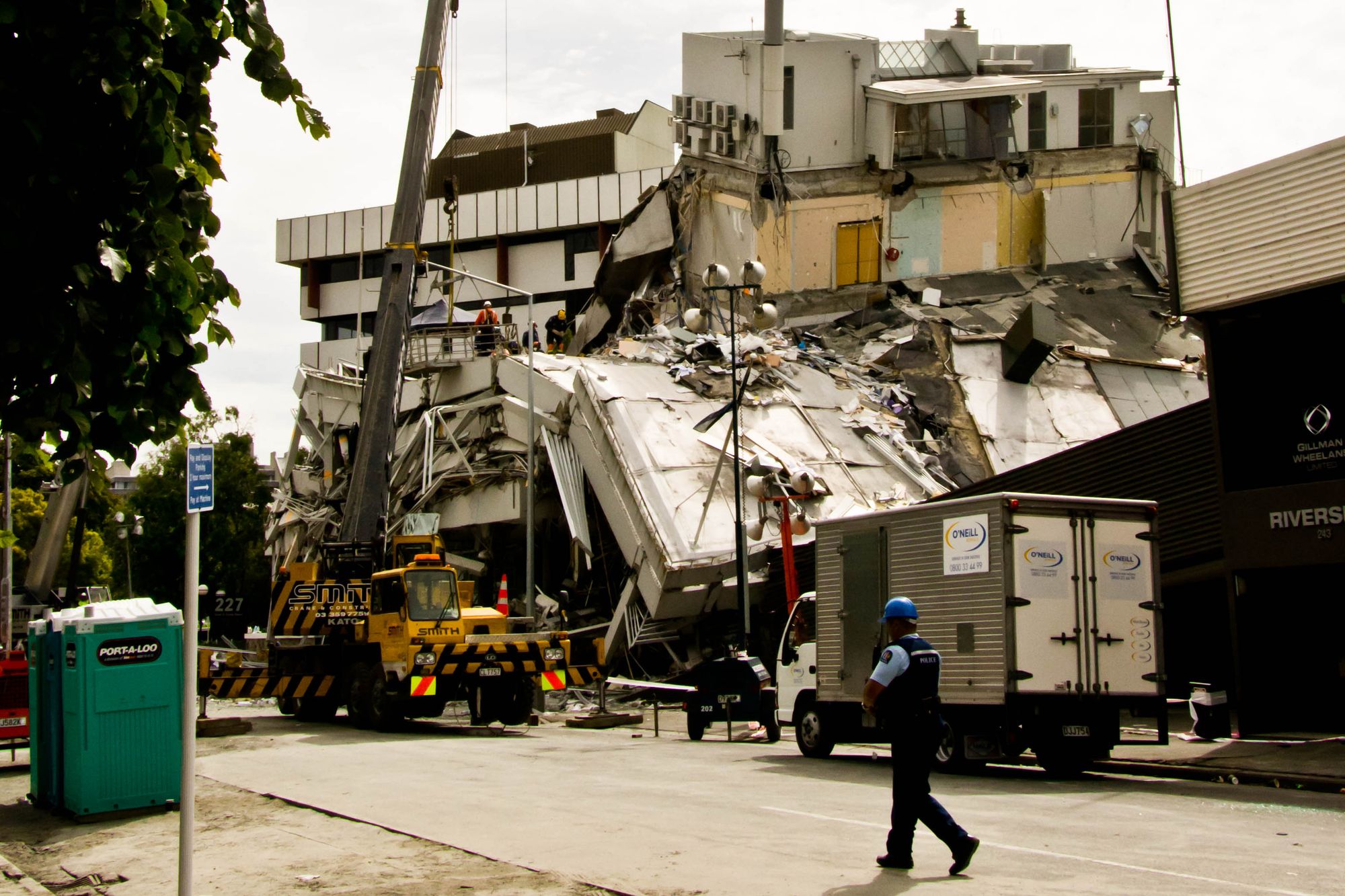Regular issues of RMN will be free to non-subscribers this week only. Take this opportunity of becoming a full subscriber at the discounted rate.
“No Excuse” For New Zealand Quake Insurers, More Modeling Needed

A long-awaited report on the New Zealand Earthquake Commission’s (EQC) response to the 2011 Christchurch earthquake says that although delays and confusion about the insurance claims process can be laid at the feet of the EQC and government, private insurers aren’t without culpability.
The report also said that research and modeling in New Zealand needs to go beyond its concentration quakes and focus on other hazards.
In regards to insurance cover, the report says private market players were reluctant to share residential policyholders’ location and property ownership causing confusion and delays in claims. The report, released yesterday said:
Private insurers have no excuse that I can discern for declining to provide EQC with the location of the risks that they, and therefore EQC, cover. This issue could have been resolved prior to the Canterbury earthquakes and would have considerably reduced EQC’s administrative workload. Private insurers have been inclined to complain about EQC’s inefficiencies and this was one way they could have assisted.
The report stated that the perception of the EQC following the 2011 6.3 magnitude quake was was of being “uncaring, miserly and inefficient” and that the private market didn’t fair much better. Both sides are frequently mentioned “with distaste and even expletives,” the report states, although the private market’s sour perception is “more muted.”
Beyond changes to the EQC’s claim process, the report proposed several changes to the way the private market should interact with the government earthquake insurance scheme. Those include:
- Change EQC Act in 2019 so it can be used to enable better information sharing between it and private insurers.
- Consider a legislative requirement for private insurers to advise EQC at least annually of their residential policyholders’ location and property ownership.
- Increase the current cap of $150,000 (plus GST) on EQC residential building cover to cover the average cost of building a house in New Zealand, or to removing the cap to provide for EQC cover to the individual sum-insured level.
Although New Zealand’s research and modeling of quakes is “invaluable” and that the country’s GeoNet platform is “widely admired and used”, the country needs to expanding its modeling expertise into tsunamis, natural landslips, volcanic eruption, or hydrothermal activity.
The report added:
Research conducted or commissioned by EQC has been a signi cant asset not only to satisfy reinsurers but also to provide invaluable information on the level, type and location of risks to residential property in New Zealand. EQC’s research capability and expertise should be encouraged and supported, but a commitment is also needed to social science research on the impacts on homeowners following a major natural disaster.
The report recommended:
- Ensure that the range of research it sponsors encompasses new opportunities in relevant fields and includes disasters other than earthquakes;
- support social science research that will help it build a greater understanding of the impacts on communities following a major natural disaster;
- cooperate with the research community in New Zealand and internationally to disseminate as widely as possible the research findings in all fields it supports, and;
- commit to and resource the ongoing development of scenario planning and modeling of major natural disasters and their consequences for buildings and land.
Risk Links
Now 54, Mottley has become a champion of what are known in sovereign debt contracts as natural-disaster clauses, measures that give the government a break from principal and interest payments in the event calamity strikes.
A Prime Minister Tries to Storm-Proof Her Island’s Finances (Bloomberg)
In March, Taiwan’s Financial Supervisory Commission approved a trial of a new blockchain insurance project to make it more convenient for policy holders. If a person needs to change their address and has multiple policies with different insurers, by updating their data once, it will be shared with other insurers.
11 Taiwanese firms to trial insurance blockchain to simplify policy changes (Ledger Insights)
Tonga marks the third island country to be hit by Harold in barely four days’ time, the relentless cyclone maintaining high-end Category 3 strength as its reign of terror continues. It comes amid a global pandemic, as coronavirus concerns have complicated sheltering decisions and may hamper relief efforts.
Cyclone Harold slams Tonga, third island nation hit in four days (Washington Post)





